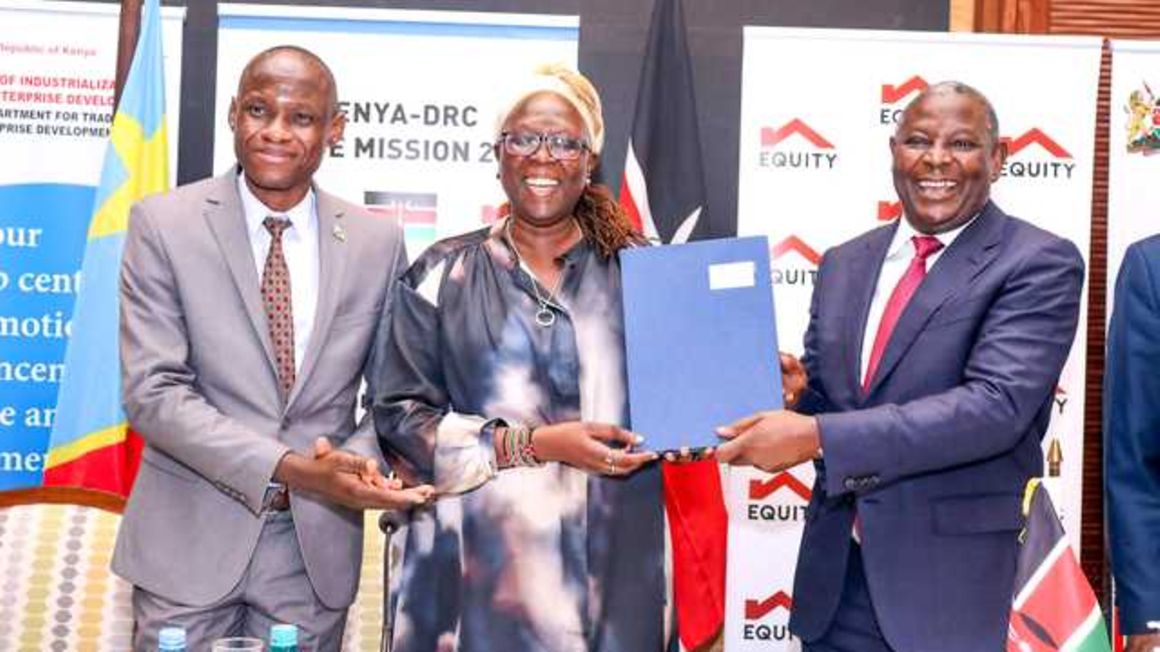From left to right: DRC Embassy second secretary Botuli Bosaw Geoffrey, Kenya Trade Cabinet Secretary Betty Maina and Equity Group CEO James Mwangi in Nairobi on November 1. FILE PHOTO | COURTESY The Marshall Plan, which borrows heavily from the $15 billion US-led European Recovery Programme following the devastation of World War II, aims to support economic revival in South Sudan, the DRC, Kenya, Tanzania, Rwanda and Uganda, countries in which the lender is present.
According to the African Development Bank (AfDB), East Africa is facing a weak economic outlook in 2021, owing to rising public debt, high cost of living and weakening credit to the private sector.
Kenya has already secured deals with Paris Club and other creditors to defer debt service payments of $600 million, including $378 million to China, for the first half of 2021.
Equity Bank, in collaboration with 37 partners that include UN agencies and development financial institutions, has developed a plan to accelerate post-Covid economic recovery in the East and Central African region through a private sector-driven $4.68 billion stimulus package.
The Marshall Plan, which borrows heavily from the $15 billion US-led European Recovery Programme following the devastation of World War II, aims to support economic revival in South Sudan, the DRC, Kenya, Tanzania, Rwanda and Uganda, countries in which the lender is present.
The plan, which is backed by over $450-million worth of loan guarantees by development financial institutions, targets micro, small and medium-sized enterprises (MSMEs). These are in key sectors of the economy like manufacturing, agro-processing, education, low-cost building and construction and the retail and wholesale trade sectors. Supporting SMEs
“We have realised that the power we have can keep the lights of these economies on. We have already done a pilot test of this programme with local SMEs and what we are doing is just up-scaling the programme across the region,” James Mwangi, the bank’s chief executive told The EastAfrican.
With a seed capital of $4.68 billion, the programme aims to create up to 25 million direct and indirect jobs by lending to five million businesses, with each receiving about $900.
“This amount [$4.68 billion] is able to fuel these economies to recovery. We are starting from a pole position, in the sense that these economies never slid into a recession last year and that East Africa is one of the fastest growing regions in the world,” said Mwangi.
The lender, which is listed on […]
